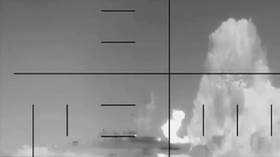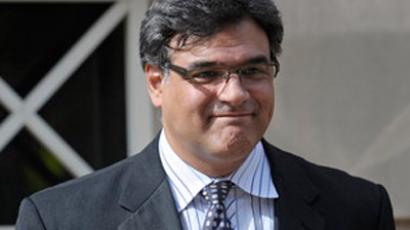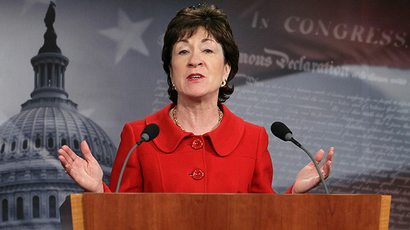Senate refuses to blame Bush, senior aides in CIA torture investigation
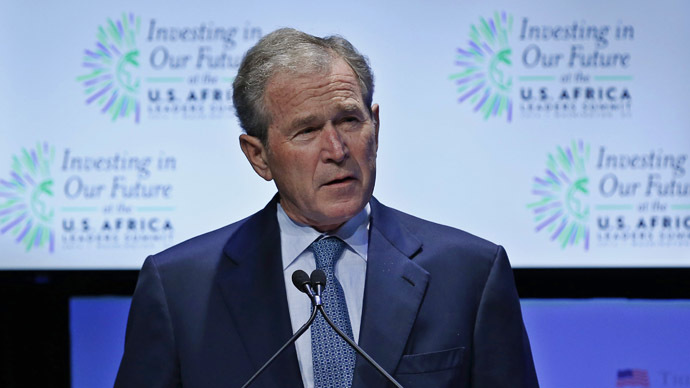
A classified US Senate probe into the CIA’s post-9/11 detention and interrogation program does not evaluate the role of former President George W. Bush or top administration officials in approving abuses including torture, according to a new report.
The Senate Intelligence Committee’s $40 million investigation into the Central Intelligence Agency's detention and interrogation program - active from September 11, 2001 to 2006 - has found that the spy agency purposely deceived the US Justice Department to attain legal justification for the use of torture techniques, among other findings that resulted in a 6,000-page report, completed from March 2009 to December 2012. Of that investigative report, the public will only see a 500-page, partially-redacted executive summary that is in the process of declassification.
What the report does not include, according to sources for McClatchy news service, is any accounting of responsibility that top members of the Bush administration have for the shadowy capture-and-detain regime at Guantanamo Bay and secret "black site" prisons, often fueled by suspect bounties, or for crafting the legal framework that allowed the CIA to interrogate detainees with waterboarding and other methods deemed to be torturous by international standards.
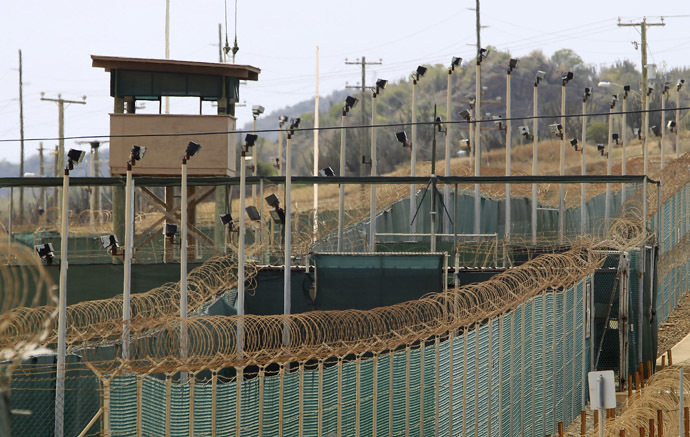
“This report is not about the White House. It’s not about the president. It’s not about criminal liability. It’s about the CIA’s actions or inactions,” said a person familiar with the report who requested anonymity, according to McClatchy.
“It does not look at the Bush administration’s lawyers to see if they were trying to literally do an end run around justice and the law,” the source added, echoing other sources that spoke to the news service regarding the report’s immunization of the Bush White House.
While specific details of the report are still unknown, McClatchy reported in April that it outlines 20 main conclusions about the post-9/11 torture program which, according to the investigation, intentionally evaded White House, congressional, and intra-agency oversight.
“The report does not put responsibility with the White House,” said a second person familiar with the Committee’s report.
The report may have been the last opportunity for officials in Washington to assess the responsibility that President Bush and top officials - like Vice President Dick Cheney - have for post-9/11 abuses, following repeated actions by President Obama and Congress to insulate the Bush administration from torture accountability.
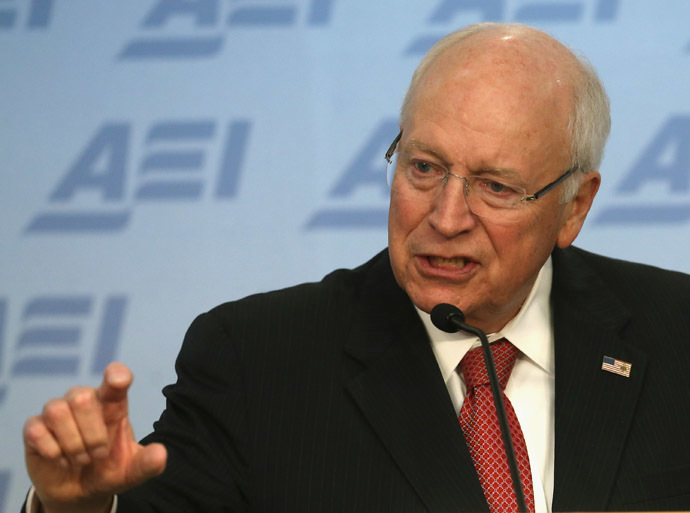
“If it’s the case that the report doesn’t really delve into the White House role, then that’s a pretty serious indictment of the report,” Elizabeth Goitein, co-director of the Brennan Center for Justice’s Liberty and National Security Program at the New York University Law School, told McClatchy.
“Ideally it should come to some sort of conclusions on whether there were legal violations and if so, who was responsible.”
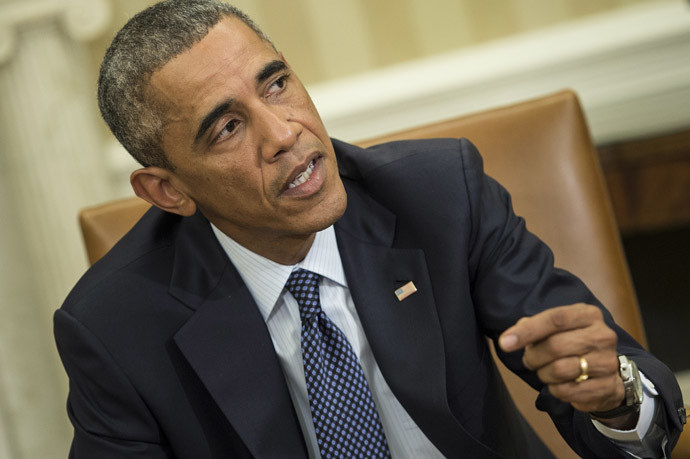
In early 2009, when authorizing the investigation into the CIA’s Rendition, Detention, and Interrogation Program, leaders of the Democratic-led Senate Intelligence Committee compromised the scope of the report in an effort to garner fleeting support from conservatives on the panel. Investigation guidelines were crafted to focus only on the CIA and how it “created, operated, and maintained its detention and interrogation program.”
“As an oversight document the main premise is about whether Congress was accurately and appropriately informed by the CIA,” said a McClatchy source familiar with the report. “The report will show that the CIA did not provide accurate information, and in some cases provided misleading information.”
Nevertheless, the panel’s chairwoman, Sen. Dianne Feinstein, and others have hailed the report as being one of the most detailed probes of the executive branch ever to be conducted by Congress.

“There are more than 35,000 footnotes in the report,” Feinstein said when the panel approved a final draft of the report in late 2012. “I believe it to be one of the most significant oversight efforts in the history of the United States Senate, and by far the most important oversight activity ever conducted by this committee.”
Yet the Committee has continued to allow the Obama White House to withhold about 9,000 documents from the investigation based on executive privilege.
The White House told McClatchy in March that a “small percentage” of the 6.2 million pages of documents given to the Committee were “set aside because they raise executive branch confidentiality interests.” The White House added that it had worked with the Committee “to ensure access to the information necessary to review the CIA’s former program.”
The CIA did not offer comment to McClatchy.
Sen. Feinstein said in a statement that the report is the “definitive review of the program.” The White House would not comment on the report, but spokeswoman Bernadette Meehan said President Obama “has made clear that the program that is the subject of the committee’s work is inconsistent with our values as a nation.”
While Bush administration officials may escape accountability vested in the Committee report, there is certainly evidence that President Bush and top aides crafted, ordered, and monitored the CIA’s Rendition, Detention, and Interrogation Program.
In a 2008 report, the Senate Armed Services Committee found that Bush ultimately approved detainee abuse in Feb. 2002 by denying Al-Qaeda and Taliban detainees any protection against torture, as is the standard of international human rights law. The report also concluded that top White House officials discussed CIA interrogation methods in 2002 and 2003.

In April 2009, McClatchy reported that Cheney and Department of Defense Secretary Donald Rumsfeld pushed torture, or “harsh interrogation methods,” in an effort to link Al-Qaeda and Iraq’s Saddam Hussein, which would bolster justification for the US invasion of Iraq in 2003.
Other reporting on the Bush White House has included National Security Adviser Condoleezza Rice, Attorney General John Ashcroft, and Secretary of State Colin Powell in the approval of abusive interrogations.
It is also widely known that White House and Dept. of Justice lawyers crafted legal language that allowed President Bush authority to order CIA torture, including waterboarding, wall-slamming, and sleep deprivation.

In justifying its interrogation methods in order to win the Justice Department’s legal approval, the CIA reportedly lied to the Office of Legal Counsel, saying that repeated use of torture like waterboarding “will not be substantial because the techniques generally lose their effectiveness after several repetitions.”
The CIA waterboarded detainees Abu Zubaydah and Khalid Sheikh Mohammed 83 and 183 times, respectively. They weren’t the only prisoners to be waterboarded or subjected to other harsh methods of interrogation, as has been reported for some time.

In its long-suppressed 2002 memo justifying these tactics, the Office of Legal Counsel said that it did not find “harsh interrogation techniques” to be illegal – pursuant to US and international law banning torture – based on information provided by the CIA. The Office of Legal Counsel added that “if these facts were to change, this advice would not necessarily apply.”
A 2004 report by the CIA’s inspector general found that the CIA had gone outside legal parameters in its interrogation activities. The internal watchdog said at the time that the “continued applicability of the DOJ opinion” was in question given the CIA had told the Justice Department that it would utilize waterboarding in the same manner that the tactic was used in US military training for personnel, in case of enemy capture. The inspector general report found that the CIA used waterboarding in a “manner different” than the military’s Survival, Evasion, Resistance, and Escape training.
The only government official that has gone to prison for torture is former CIA agent John Kiriakou, who felt the brunt of the Obama administration's harsh treatment of government whistleblowers after he was the first to confirm the existence of the agency's post-9/11 use of waterboarding. He is currently serving a two-and-a-half-year prison sentence.








